Now 50% Off for a Limited Time
50% Off – Sale Ends Tomorrow
50% Off – Sale Ends Tonight
Expert Strategies for Dissolving Your Client’s Resistance

When our clients are distrustful or skeptical of our work, it can create difficult barriers to healing.
To us, this can sometimes feel like resistance.
But is resistance even a valid notion?
What may at first seem like opposition, can often signal our client’s deepest struggles.
The difficult part is seeing beyond the “push back” to take in the important message our client is telling us, so we can work with instead of against their energy.
So we asked the top 20 experts in our field how they worked with their most challenging clients. We were surprised by the deep dive of their answers.
They gave us useful skills that can radically shift this kind of resistance and actually help reverse a client’s ambivalence to change.
That’s why we made. . .
How to Work with a Client’s Resistance

How to Help Clients Shift Out of Avoidance so They Can Heal
Part 1: How to Work with Reluctance Linked to Attachment Issues
Pat Ogden, PhD Kelly McGonigal, PhD
- How a client’s movement vocabulary can reveal an inner conflict
- One way to help clients reestablish a sense of identity in their body
- How to approach implicit memories that fuel a client’s avoidance

Part 2: How to Resolve the Core Threat That’s Fostering Your Client’s Opposition
Sue Johnson, EdD Kelly McGonigal, PhD
- How to change a combative session into a collaborative one
- How to isolate the main threat that’s feeding a client’s rigidity
- The simple but powerful way validation impacts an avoidant mindset

One Hidden Fear That May Be Driving Your Client’s Reluctance
Laurel Parnell, PhD Rick Hanson, PhD
- The counterintuitive reason your client may be avoiding change
- The unique way guilt affects a client’s feelings of unwillingness

How to Help Clients Move Out of a Defensive State
Bessel van der Kolk, MD Stephen Porges, PhD Ron Siegel, PsyD
- The critical reason some clients fear calmness
- One physiological change that can alter how we interact with others
- The specific breathing pattern that can trap a client in a defensive state

3 Skills to Expand a Client’s Openness to Change
Kelly McGonigal, PhD Bill O’Hanlon, LMFT Ron Siegel, PsyD
- One personality type that is most prone to challenging the therapy
- A 3-step action plan to foster change without triggering opposition
- How to promote a healthier mindset that resists barriers to growth

How to Work with the Deep Vulnerabilities That Keep a Client from Change
Richard Schwartz, PhD Kelly McGonigal, PhD Bill O’Hanlon, LMFT
Terry Real, MSW, LICSW Ron Siegel, PsyD
- The crucial message that can soften a client’s protective parts
- The specific way to introduce hope in the healing process (so it’s actually received)
- How to work with “rational deformity” to help clients build authentic connections
- The silent vulnerability that’s most often behind a client’s reluctance

How to Avoid Misdiagnosing Clients as Unmotivated
Michael Yapko, PhD Bill O’Hanlon, LMFT Ron Siegel, PsyD
- The key factor that falsely presents as a lack of motivation
- The vital message your client is giving you when they don’t follow your advice
- The important difference between resistance and rigidity
- How a client’s specific cognitive style can keep them stuck in avoidance

How to Sell Behavior Change to Your Most Challenging Clients
Marsha Linehan, PhD Peter Levine, PhD
- What can go wrong when you engage a client’s willfulness
- How to help clients be more open to your interventions
- What a client needs to get from you before they’ll agree to your ideas

How to Help Clients Shift from Reluctance to Openness
Shelly Harrell, PhD Ron Siegel, PsyD Kelly McGonigal, PhD
- How to identify seeds of unwillingness inside the therapeutic alliance
- One change that can improve your outcome with clients who oppose all your ideas
- How to work with clients who struggle to disclose feelings
- 3 therapeutic messages to help clients reverse their reluctance

How the Practitioner May Be Perpetuating Opposition in Their Client
Rick Hanson, PhD Bill O’Hanlon, LMFT Zindel Segal, PhD
Ron Siegel, PsyD Kelly McGonigal, PhD Joan Borysenko, PhD
- What can go wrong when you resist a client’s resistance
- How to recognize the dangerous way a client’s willfulness may be affecting you
- How to foster a high level of support for clients who don’t do the work
Register Here for $197 $97
and get 12 videos, audios, transcripts, plus 5 bonuses
to help you work more effectively with a client’s depression
Up to 4 CE/CME Credits or Clock Hours are available for purchase at checkout.
Click HERE to get information about CE/CME credits and clock hours as well as speaker disclosures
“You will grow as a human being . . . it’s that powerful”
— Terri Boling, Licensed Counselor —

For This Short Course on How to Work with a Client’s Resistance, We Brought Together the Top Experts in the Field

Stephen Porges, PhD
Developer of Polyvagal Theory; Distinguished University Scientist at the Kinsey Institute at Indiana University Bloomington and Research Professor in the Department of Psychiatry at University of North Carolina Chapel Hill.

Marsha Linehan, PhD
Creator of Dialectical Behavior Therapy (DBT); Professor of Psychology, Adjunct Professor of Psychiatry and Behavioral Sciences at the University of Washington and Director of the Behavioral Research and Therapy Clinics.
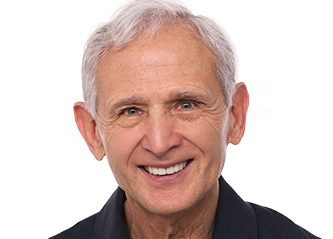
Peter Levine, PhD
Founder of Somatic Experiencing; Author of Trauma and Memory: Brain and Body in a Search for the Living Past: A Practical Guide for Understanding and Working with Traumatic Memory.

Pat Ogden, PhD
Pioneer in Somatic Psychology; Founder and Director of Sensorimotor Psychotherapy Institute (SPI); Co-founder of the Hakomi Institute; Author of Sensorimotor Psychotherapy: Interventions for Trauma and Attachment.

Richard Schwartz, PhD
Founder of Internal Family Systems (IFS) and The Center for Self Leadership; Author of Introduction to Internal Family Systems.

Bessel van der Kolk, MD
Neuroscientist and Professor of Psychiatry at Boston University Medical School. Author of The Body Keeps the Score: Brain, Mind, and Body in the Healing of Trauma.
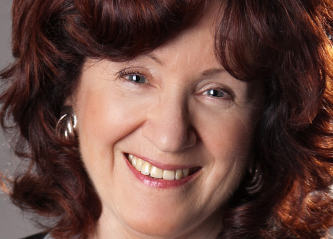
Sue Johnson, EdD
Creator of Emotionally Focused Therapy (EFT); Founder and Director of the International Centre for Excellence in Emotionally Focused Therapy.
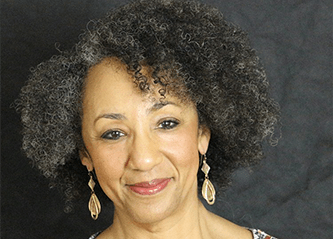
Shelly Harrell, PhD
Licensed psychologist specializing in multicultural and community psychology; Professor of Psychology in the Graduate School of Education at Pepperdine University.

Dan Siegel, MD
Executive Director of the Mindsight Institute; Co-Director of UCLA’s Mindful Awareness Research Center; author of Mindsight: The New Science of Personal Transformation and The Mindful Therapist: A Clinician’s Guide to Mindsight and Neural Integration.

Rick Hanson, PhD
Senior Fellow of the Greater Good Science Center at UC Berkeley; New York Times bestselling author of Hardwiring Happiness and Buddha’s Brain.
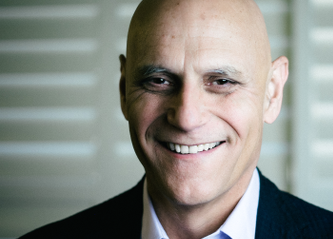
Steven Hayes, PhD
Creator of Acceptance and Commitment Therapy (ACT); Nevada Foundation Professor at the Department of Psychology at the University of Nevada, Reno.
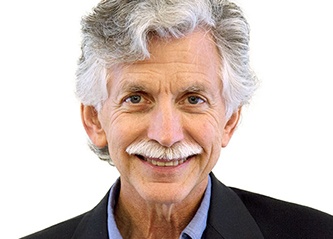
Ron Siegel, PsyD
Assistant Professor of Psychology, part time, Harvard Medical School; Author of The Mindfulness Solution: Everyday Practices for Everyday Problems and Sitting Together: Essential Skills for Mindfulness-Based Psychotherapy.
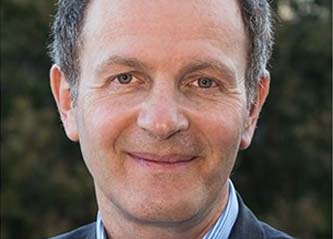
Zindel Segal, PhD
A founder of Mindfulness-Based Cognitive Therapy (MBCT); Professor of Psychology at the University of Toronto.
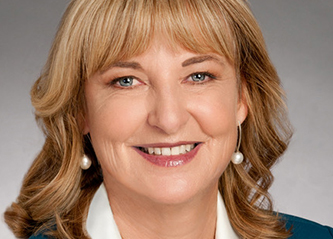
Laurel Parnell, PhD
Leading expert in Eye-Movement Desensitization and Reprocessing (EMDR); Author of Attachment-Focused EMDR: Healing Relational Trauma.

Kelly McGonigal, PhD
Health psychologist and lecturer at Stanford University; Author of The Upside of Stress: Why Stress Is Good for You and How to Get Good At It and The Willpower Instinct: How Self-Control Works, Why It Matters, and What You Can Do to Get More of It.

Joan Borysenko, PhD
Founder of Mind/Body Health Sciences LLC; Author of New York Times Bestseller Minding the Body, Mending the Mind.

Bill O’Hanlon, LMFT
Co-developer of Solution-Oriented Therapy; Psychotherapist, speaker, and author of Do One Thing Different: Ten Simple Ways to Change Your Life.
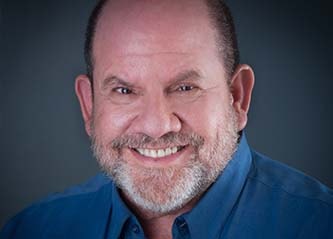
Stan Tatkin, PsyD, MFT
Founder of the PACT Training Institute and developer of a Psychobiological Approach to Couple Therapy (PACT).
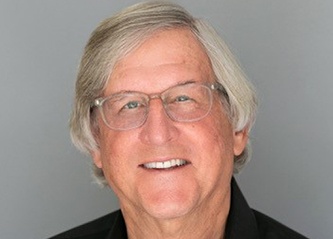
Michael Yapko, PhD
Leading expert in clinical hypnosis and treating depression; Clinical psychologist and author of 15 books including his newest books, The Discriminating Therapist and Keys to Unlocking Depression.
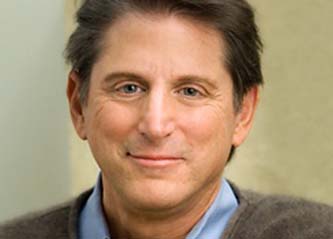
Terry Real, MSW, LICSW
Founder of the Relational Life Institute; Author of I Don’t Want to Talk About It: Overcoming the Secret Legacy of Male Depression and The New Rules of Marriage: What You Need to Make Love Work.
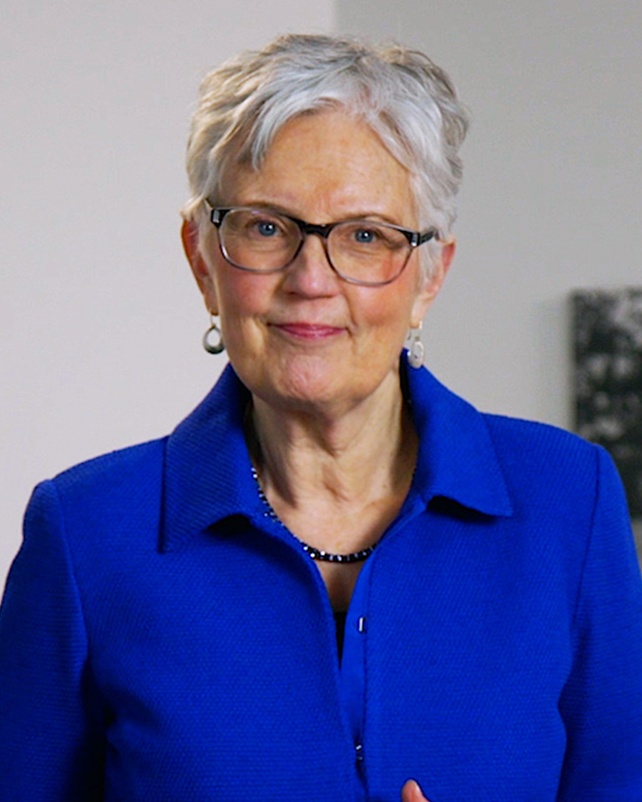
Course Director
Ruth Buczynski, PhD
Here's What You'll Get:
Everything is yours to keep forever in your professional library
|
|
Downloadable videos so you can watch at your convenience, on any device |
|
|
Audio recordings you can download and listen to at home, in the car, at the gym or wherever you like |
|
|
Professionally-formatted transcripts of the sessions, to make review and action simple |
|
|
Five downloadable bonus videos to help you work more effectively with a client’s resistance |
Get 5 Bonuses That Give You Even More Strategies for Working with a Client’s resistance

The Brain Science Behind a Client’s Unwillingness (and How It Can Foster More Powerful Interventions)
Dan Siegel, MD Kelly McGonigal, PhD
Joan Borysenko, PhD
- How “spiritual bypass” can keep clients stuck in avoidance (and how to work with it)
- Why underdevelopment of this part of the brain can lead to reluctance

How to Work with Avoidant Relationships
Stan Tatkin, PsyD, MFT
- Why it’s vital for you to introduce pain and discomfort in your work with certain couples
- How to help couples confront the vital issues they’ve learned to avoid

The Key Message Inside Your Client’s Unwillingness
Steven Hayes, PhD Bill O’Hanlon, LMFT
Kelly McGonigal, PhD Ron Siegel, PsyD
- Why you should always walk toward your client’s resistance
- One professional risk that can strengthen the therapeutic relationship and foster change

One Change That Can Unravel a Client’s Rigid Beliefs
Kelly McGonigal, PhD Ron Siegel, PsyD
Bill O’Hanlon, LMFT
- The clarifying reason we need pushback from our clients
- Why you need to feel uncomfortable in your session (this can make all the difference)
- What lies beneath most clients’ rigid beliefs

How to Engage with a Willful Client
Marsha Linehan, PhD Ron Siegel, PsyD
Kelly McGonigal, PhD
- The parenting model that can improve your work with willful clients
- The trick to working with willfulness (it may go against your natural inclination)
- The danger of using contingency management to foster behavior change
Register Here for $197 $97
and get 12 videos, audios, transcripts, plus 5 bonuses
to help you work more effectively with a client’s depression
Up to 4 CE/CME Credits or Clock Hours are available for purchase at checkout.
Click HERE to get information about CE/CME credits and clock hours as well as speaker disclosures
Starting Today, This Program Can Change the Way You Practice

I . . . appreciate the need to see resistance as a vulnerability that we need to honour.
“This theme is very powerful to me, in being able to understand what might be fueling a non-responsive or shut down client. I also appreciate the need to see resistance as a vulnerability that we need to honour in the therapy room. I particularly liked how Rick Hanson and Pat Ogden both turn towards the body in different ways to explain how the client can be engaged in a mobilization experience. To me it is about finding the mechanism for the body and mind to shift-and this will depend on your client’s unique presentation and struggle. ”
Sachelle Le Gall-Singh, Clinical Psychologist
Trinidad and Tobago

I have gained so much from listening to these different perspectives on resistance.
“I have gained so much from listening to these different perspectives on resistance. I intend to be more mindful of resistance and will use some of these suggestions to work with resistance. This has been another amazing week of therapy for the therapist!”
Ada Andrist, Counseling
Bartlett, IL

. . . I feel so fortunate to have this access to brain power, experience and research synthesis . . .
“When I listen to the experts talk openly about their experience, I feel so fortunate to have this access to brain power, experience and research synthesis on cutting edge issues! I go back to the videos to reinforce things that will assist my clients.”
Mary Logan, Counselor
Ipswich, MA

I benefit, my practice benefits, and most important my clients benefit . . .
“I live in Nova Scotia and have limited travel funds at the university at which I work. The series provided by NICABM gives me the rare opportunity to listen to the leaders in the field. As a result, I learn valuable information that would not otherwise be available to me. I benefit, my practice benefits, and most important my clients benefit from the knowledge and wisdom I gain from the series.”
David Mensink, PhD Counseling Psychology, Psychologist
Halifax, Nova Scotia, Canada
Why the Transcript Is Essential:
- The transcript makes it easy to go back and double check concepts, citations and names that are mentioned
- We put in a table of contents to make it easy for you to find the exact part of the session you need
- Having the concepts already written allows you to take notes on how you’re going to use the ideas rather than transcribing the ideas
- Some people simply learn better by reading than by listening or watching
- You will be able to print out and share techniques presented in the session with your patients

“I really liked being able to follow along with the transcripts as I listened…it was nice not to feel like I had to take notes. I really feel like I remember more when I both hear and see at the same time.”
Mary Ellen McNaughton, Masters in Counseling, Psychology Counselor
Kelowna, British Colombia, Canada
You Are Protected By
NICABM’s Money-Back Guarantee
We invite you to register for this training program without any risk. Unless you are completely satisfied, we will refund your money. Just let us know within 30 days from the date of registration. We are that confident that you will find this information to be more than you expected.
Register Here for $197 $97
and get 12 videos, audios, transcripts, plus 5 bonuses
to help you work more effectively with a client’s depression
Up to 4 CE/CME Credits or Clock Hours are available for purchase at checkout.
Click HERE to get information about CE/CME credits and clock hours as well as speaker disclosures

